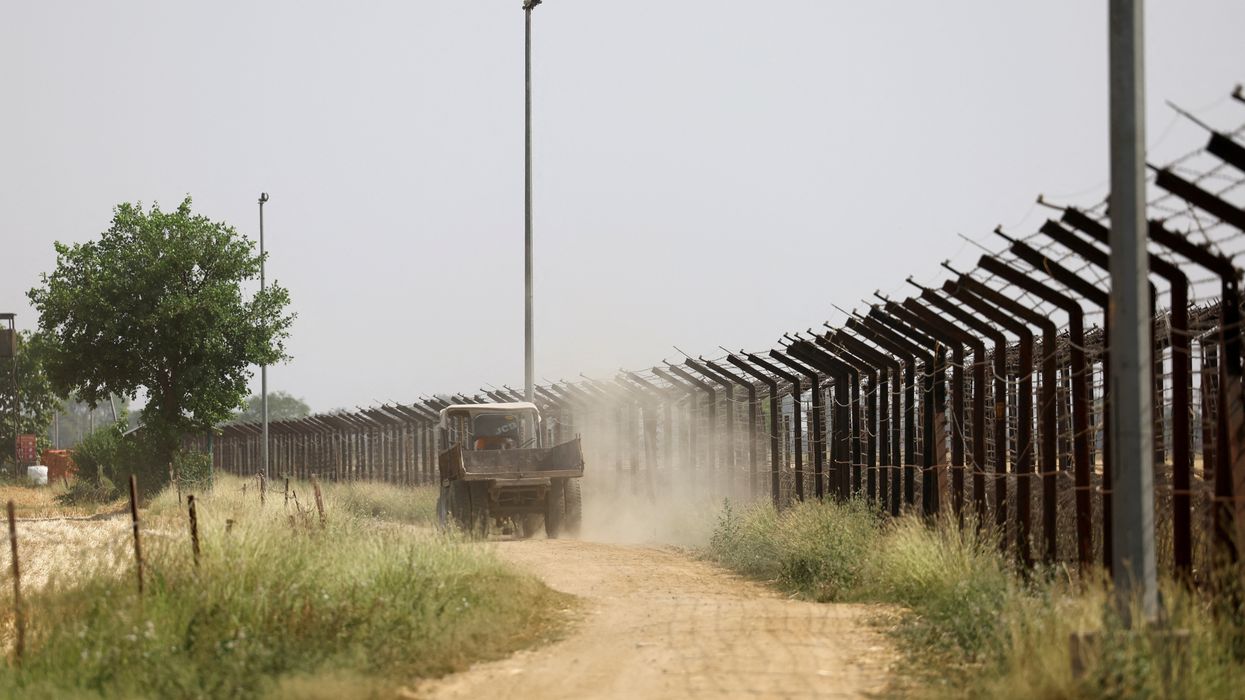TROOPS from India and Pakistan exchanged fire in Kashmir for a third consecutive night, officials said on Sunday, as relations between the two countries continued to deteriorate.
India has accused Pakistan of supporting "cross-border terrorism" after gunmen carried out the worst attack on civilians in Kashmir in 25 years.
Islamabad has denied involvement, describing attempts to link Pakistan to the attack as "frivolous" and said it would respond to any Indian action.
ALSO READ: Five key developments after the deadly Kashmir attack
Indian security forces have launched a manhunt for those responsible for killing 26 men at a tourist hotspot in Pahalgam on April 22.
The Indian military said on Sunday there had been "unprovoked" firing of small arms "initiated by Pakistan" along the Line of Control, which separates the two countries.
"(Our) own troops responded effectively with appropriate small arms fire," the military said.
Pakistan has not yet confirmed the latest exchange of fire.
Indian police have issued wanted posters for three men — two Pakistanis and one Indian — who they say are members of the Pakistan-based Lashkar-e-Taiba group, a UN-designated terrorist organisation.
India's federal home ministry has handed over the investigation to the National Investigation Agency (NIA), which focuses on counter-terrorism.
The agency said it was examining eyewitnesses, scrutinising entry and exit points, and collecting forensic evidence.
"The eyewitnesses are being questioned in minute detail to piece together the sequence of events that led to one of the worst terror attacks in Kashmir," it said in a statement.
Houses bombed
Kashmir has been divided between India and Pakistan since 1947, with both countries claiming the territory in full but administering separate parts.
Rebel groups have waged an insurgency in Indian-administered Kashmir since 1989, demanding either independence or a merger with Pakistan.
On Saturday, soldiers in Indian-administered Kashmir destroyed the family home of one of the Pahalgam attack suspects. The house of Farooq Ahmad Tadwa was demolished in Kupwara district, as part of a series of actions targeting houses of alleged terrorists.
A police official told AFP on condition of anonymity that nine houses belonging to the terrorists have been bombed since the Pahalgam attack.
Following the attack, New Delhi suspended a water-sharing treaty, closed the main land border crossing with Pakistan, downgraded diplomatic ties, and withdrew visas for Pakistani nationals.
In response, Islamabad ordered the expulsion of Indian diplomats and military advisers, cancelled visas for Indian nationals — except for Sikh pilgrims — and closed the main border crossing from its side.
The United Nations has urged both countries to exercise "maximum restraint" and resolve issues "peacefully through meaningful mutual engagement".
The Pahalgam attack marks a change in the pattern of recent Kashmiri rebel attacks, which have usually targeted Indian security forces.
Analysts said an Indian military response may be underway. "There will be military retaliation and we are prepared. We are discussing the nature of the strike," The Indian Express newspaper quoted a top government source as saying on Sunday.
In 2019, a suicide attack killed 41 Indian troops in Kashmir and led to Indian air strikes inside Pakistan, bringing the two countries close to full-scale war.
(With inputs from agencies)





